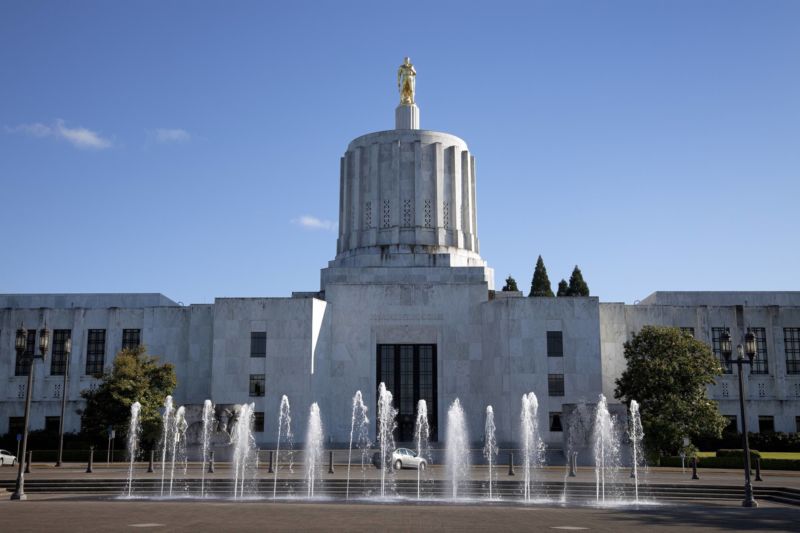
Oregon Governor Kate Brown today will sign a net neutrality bill into law, making Oregon the second state to pass a net neutrality law since the Federal Communications Commission voted to repeal nationwide rules.
Brown announced on Friday that she would sign the bill Monday during an event at a middle school. The bill was previously approved by the state House and Senate.
The new law was written narrowly in an attempt to survive lawsuits from ISPs. Instead of imposing prohibitions on all Internet providers, the law forbids state agencies from purchasing fixed or mobile Internet service from ISPs that violate the core net neutrality principles laid out in the soon-to-be-dead FCC rules.
ISPs that sell Internet service to Oregon state agencies will be required to publicly disclose whether they block or throttle lawful Internet traffic or engage in paid prioritization (subject to reasonable network management).
Washington state law is stricter
Washington was the first state to pass a net neutrality law and went further than Oregon by imposing the rules on all ISPs regardless of whether they sell Internet service to state agencies. In addition to Washington state, the governors of five states (Vermont, Hawaii, Montana, New Jersey, and New York) issued executive orders to impose net neutrality rules on ISPs that provide Internet service to state government agencies.
The new Oregon law "mandates that public bodies in Oregon only contract with Internet service providers that operate under net neutrality, which requires Internet service providers to enable equal access for all Web traffic, regardless of the source," Brown's announcement said. It is scheduled to take effect on January 1, 2019, and applies to new broadband service contracts or renewals entered into on or after that date.
The new law acknowledges the possibility that even state agencies might be forced to choose an ISP that violates net neutrality because there are no other options. The purchasing requirements will not apply when an ISP "is the sole provider of fixed broadband Internet access service to the geographic location subject to the contract."
The Oregon law's no-blocking and no-throttling mandates also have exceptions for "addressing copyright infringement or other unlawful activity or the needs of emergency communications, law enforcement, public safety or national security authorities." Paid prioritization would be allowed if the state Public Utility Commission determines that it "provides significant public interest benefits and does not harm the open nature of the provided broadband Internet access service."
The Oregon law also gives the Public Utility Commission authority to determine whether any blocking or throttling would qualify as reasonable network management. To qualify under that exemption, the blocking or throttling must be "narrowly tailored to achieve a legitimate network management purpose" and not be the result of a business decision.
Broadband lobby promises to sue states
A lobby group that represents AT&T, Verizon, and other telcos has already said it plans to sue states and cities that try to enforce net neutrality rules. States that narrowly target net neutrality rules on ISPs that sell to state agencies are trying to get around the FCC's claim that state net neutrality laws are preempted by federal policy.
But the FCC can't preempt state net neutrality laws because it abandoned its authority to regulate broadband providers as common carriers, some supporters of stricter state laws argue.
reader comments
80